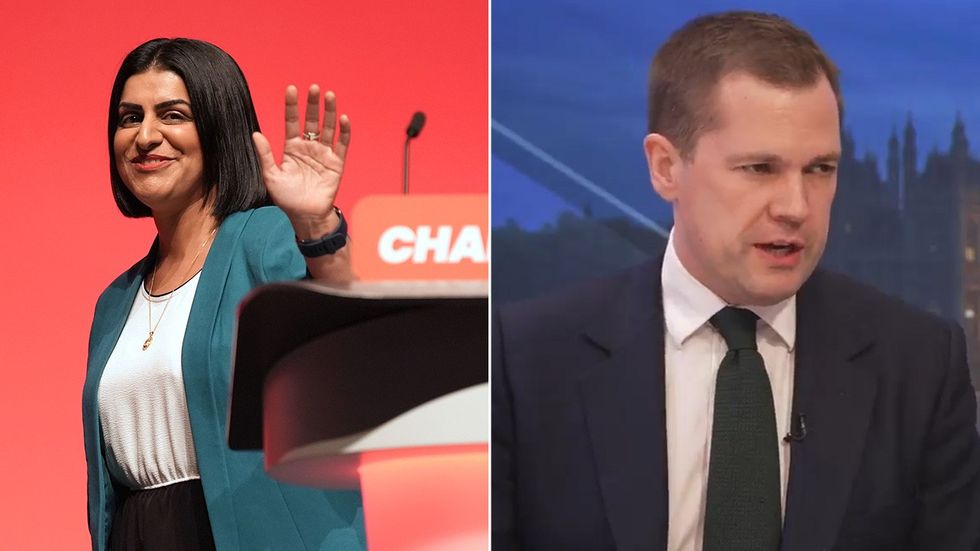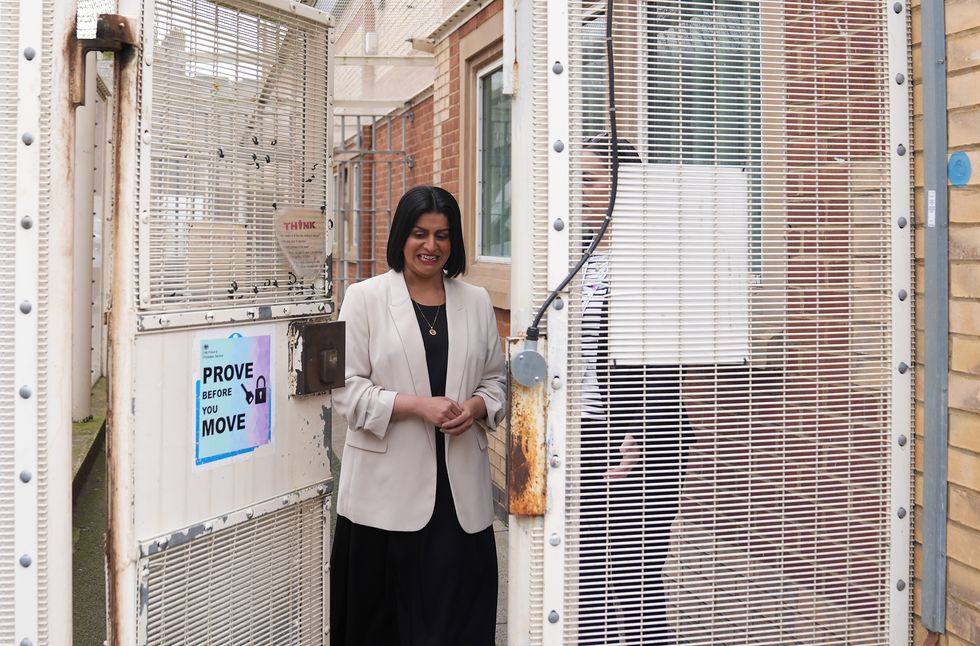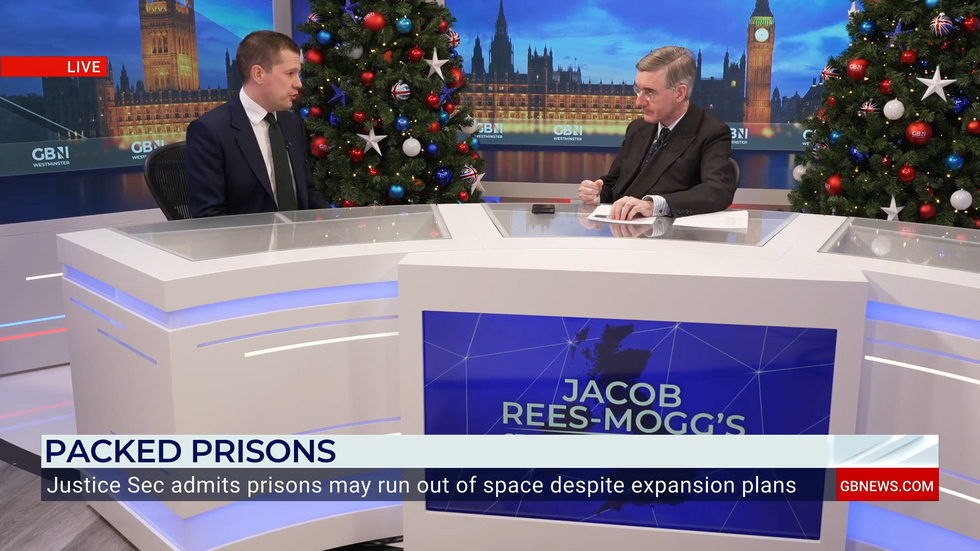Georgia Pearce
Guest Reporter
Shadow Justice Secretary Robert Jenrick has called for the deportation of foreign criminals to address the UK's prison capacity crisis.
Speaking on GB News, Jenrick criticised the current state of British prisons, highlighting issues of "flagrant corruption" in the system.
The Shadow Justice Secretary, who was defeated by Kemi Badenoch in the 2024 Tory leadership race, acknowledged that while the previous Conservative Government had built more prison places than Labour administrations, the efforts were insufficient to meet current demands.
"We need to build more," he told GB News.

Jenrick also pointed to the presence of 10,500 foreign criminals in UK prisons as a key issue requiring immediate action.
"That is the easiest way in which we can get capacity in those prisons to quell the current problem and to be able to lock up more dangerous people who are currently on the streets," he said.
The Shadow Justice Secretary criticised the handling of prison infrastructure projects by the Ministry of Justice and Civil Service.
Jenrick said: "The British state just doesn't seem to be able to build anything these days."

He called for changes to the planning system to accelerate prison construction.
Jenrick advocated for a tougher stance on foreign deportations, suggesting leveraging diplomatic tools.
LATEST DEVELOPMENTS:
"We should be saying to a foreign country, take back your criminals. And if you're not willing to do that, why would you get foreign aid? Why can you have full access to our visa system?" he said.
Jenrick also doubled-down on his criticism of the European Convention on Human Rights, accusing the Strasbourg-court of hampering deportation efforts.
"Criminals concoct absurd claims, like because they've now got kids in this country, they have a right to a family life, they couldn't possibly be sent back to their home country, even if they're a murderer or a paedophile or a terrorist," he told GB News.
Jenrick added: "That is just outrageous, and the British public won't accept it."
The Shadow Justice Secretary also expressed concerns about the current state of UK prisons during his GB News appearance.
"I don't think our prisons are well run. If you visit prisons, you can see that there is flagrant corruption, there is drug and alcohol abuse, which is not being properly treated," he said.
Jenrick later highlighted additional challenges including "radicalisation by Islamist groups in our prisons" and "poor education."
The Shadow Justice Secretary also criticised the high costs of prison construction in the UK compared to other countries.

He suggested adopting methods used in the United States, such as modular prisons built in factories, to speed up construction and reduce costs.
Despite concerns about prison management, Jenrick maintained that more offenders should be incarcerated, particularly repeat criminals.
"If you are a prolific offender, someone who has been convicted many times for these sorts of offences, you should be in jail," he stated.
He acknowledged that while overall crime has fallen, certain categories like robberies, burglaries and theft continue to be problematic.
Jenrick suggested that alternative approaches might be appropriate for offenders with mental health conditions.
"In some other countries, they find alternative ways of keeping those people off the street and trying to rehabilitate them," he said.
Find Out More...
Speaking on GB News, Jenrick criticised the current state of British prisons, highlighting issues of "flagrant corruption" in the system.
The Shadow Justice Secretary, who was defeated by Kemi Badenoch in the 2024 Tory leadership race, acknowledged that while the previous Conservative Government had built more prison places than Labour administrations, the efforts were insufficient to meet current demands.
"We need to build more," he told GB News.

Jenrick also pointed to the presence of 10,500 foreign criminals in UK prisons as a key issue requiring immediate action.
"That is the easiest way in which we can get capacity in those prisons to quell the current problem and to be able to lock up more dangerous people who are currently on the streets," he said.
The Shadow Justice Secretary criticised the handling of prison infrastructure projects by the Ministry of Justice and Civil Service.
Jenrick said: "The British state just doesn't seem to be able to build anything these days."

He called for changes to the planning system to accelerate prison construction.
Jenrick advocated for a tougher stance on foreign deportations, suggesting leveraging diplomatic tools.
LATEST DEVELOPMENTS:
- 'He's a good communicator!' Badenoch issued Farage warning as Reform UK poses fatal threat to Tories
- Home Office considers disused care homes and student flats for migrant housing
- Farmers can win concessions by targeting Labour's marginal rural seats, says Farage
"We should be saying to a foreign country, take back your criminals. And if you're not willing to do that, why would you get foreign aid? Why can you have full access to our visa system?" he said.
Jenrick also doubled-down on his criticism of the European Convention on Human Rights, accusing the Strasbourg-court of hampering deportation efforts.
"Criminals concoct absurd claims, like because they've now got kids in this country, they have a right to a family life, they couldn't possibly be sent back to their home country, even if they're a murderer or a paedophile or a terrorist," he told GB News.
Jenrick added: "That is just outrageous, and the British public won't accept it."
The Shadow Justice Secretary also expressed concerns about the current state of UK prisons during his GB News appearance.
"I don't think our prisons are well run. If you visit prisons, you can see that there is flagrant corruption, there is drug and alcohol abuse, which is not being properly treated," he said.
Jenrick later highlighted additional challenges including "radicalisation by Islamist groups in our prisons" and "poor education."
The Shadow Justice Secretary also criticised the high costs of prison construction in the UK compared to other countries.

He suggested adopting methods used in the United States, such as modular prisons built in factories, to speed up construction and reduce costs.
Despite concerns about prison management, Jenrick maintained that more offenders should be incarcerated, particularly repeat criminals.
"If you are a prolific offender, someone who has been convicted many times for these sorts of offences, you should be in jail," he stated.
He acknowledged that while overall crime has fallen, certain categories like robberies, burglaries and theft continue to be problematic.
Jenrick suggested that alternative approaches might be appropriate for offenders with mental health conditions.
"In some other countries, they find alternative ways of keeping those people off the street and trying to rehabilitate them," he said.
Find Out More...